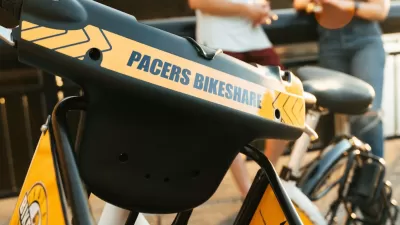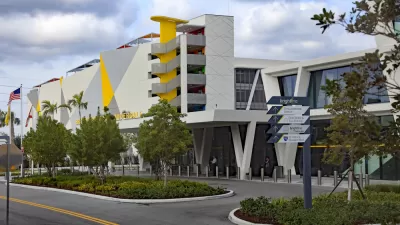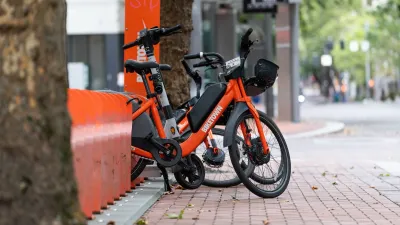The system overhaul is partly due to nextbike's shift to focusing on its European markets. The new fleet will include 350 e-bikes and expand service to new neighborhoods.

Pittsburgh's bike share system is getting an overhaul after hitting record numbers in its seventh year of operation, reports Ed Blazina.
"The agency rolled out its new system, called POGOH, featuring lighter, sturdier bikes at a news conference at Highmark Stadium Wednesday. The new system replaces Healthy Ride in about three weeks and current users will have to register again when it begins operation."
The system will also feature 200 new electric-assist bikes (half of the 400 bikes that will be added to the fleet) and 38 new stations. The new bicycles feature a more accessible design, according to David White, executive director of the city's bike share program, that will allow the system to drop its minimum age from 16 to 14.
By the end of the year, the agency plans to add 65 more new stations and 300 bikes. According to the article, "The system will continue to be sponsored by Highmark Blue Cross Blue Shield and the Allegheny Health Network. The agency also has received grants from the Heinz Endowments, the Hillman Foundation and the Richard King Mellon Foundation," along with a federal DOT grant.
"Since it opened in 2015, Bike Share has charged $2 for a 30-minute ride. The new system will charge $3.50 for each 30 minutes on a pedal bike and $5 for e-assist." People receiving government assistance will be eligible for a reduced rate.
"Bike Share had to completely rebuild its system because the previous supplier, nextbike, shifted its concentration to Europe, leaving Pittsburgh as its only American client. Additionally, that system used 3G equipment to communicate, and the three major suppliers of that system shut down earlier this year." The system will be supplied by Montreal-based PBSC Urban Solutions going forward.
FULL STORY: Bike Share Pittsburgh gets new bikes and a new system with a new name: POGOH

Study: Maui’s Plan to Convert Vacation Rentals to Long-Term Housing Could Cause Nearly $1 Billion Economic Loss
The plan would reduce visitor accommodation by 25,% resulting in 1,900 jobs lost.

North Texas Transit Leaders Tout Benefits of TOD for Growing Region
At a summit focused on transit-oriented development, policymakers discussed how North Texas’ expanded light rail system can serve as a tool for economic growth.

Why Should We Subsidize Public Transportation?
Many public transit agencies face financial stress due to rising costs, declining fare revenue, and declining subsidies. Transit advocates must provide a strong business case for increasing public transit funding.

How to Make US Trains Faster
Changes to boarding platforms and a switch to electric trains could improve U.S. passenger rail service without the added cost of high-speed rail.

Columbia’s Revitalized ‘Loop’ Is a Hub for Local Entrepreneurs
A focus on small businesses is helping a commercial corridor in Columbia, Missouri thrive.

Invasive Insect Threatens Minnesota’s Ash Forests
The Emerald Ash Borer is a rapidly spreading invasive pest threatening Minnesota’s ash trees, and homeowners are encouraged to plant diverse replacement species, avoid moving ash firewood, and monitor for signs of infestation.
Urban Design for Planners 1: Software Tools
This six-course series explores essential urban design concepts using open source software and equips planners with the tools they need to participate fully in the urban design process.
Planning for Universal Design
Learn the tools for implementing Universal Design in planning regulations.
City of Santa Clarita
Ascent Environmental
Institute for Housing and Urban Development Studies (IHS)
City of Grandview
Harvard GSD Executive Education
Toledo-Lucas County Plan Commissions
Salt Lake City
NYU Wagner Graduate School of Public Service





























